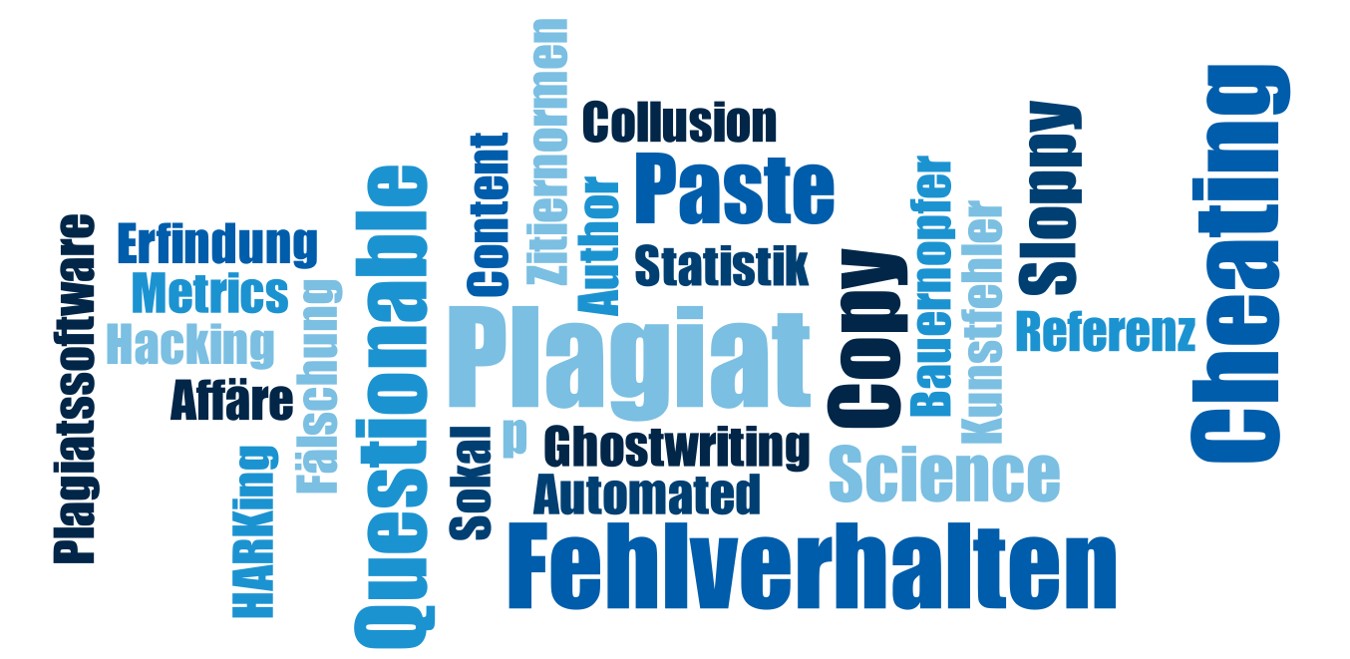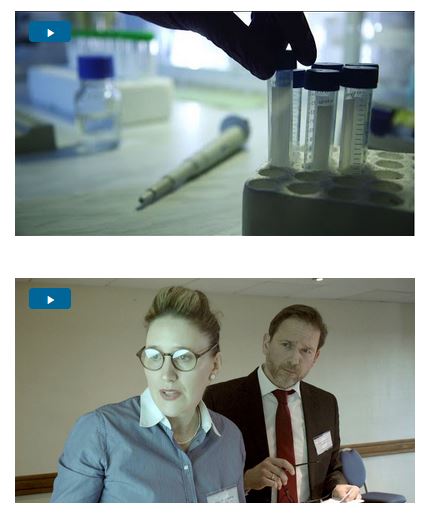After successful completion of the course, students are able to:
• know the fundamental ethical norms of science and, in addition, especially those of the discipline they study
• act in accordance with the fundamental ethical norms of science and, in addition, especially with those of the discipline they study
• recognize and classify scientific misconduct
• maintain quality standards in their own research process
• use software solutions for content quality assurance and correctly interpret reports

Where do the scientific working techniques come from, and why is the safeguarding of "good scientific practice" so important? This lecture deals in an overview...
- with the forms of quality assurance of scientific work (such as codes of conduct, plagiarism software testing, stylometrics, open data, open access)
- as well as with the forms of scientific misconduct (such as plagiarism, contract cheating, 'ghostcoding', unethical authorship, collusion, data manipulation, data fabrication, title mills and so on)
- and their grey areas (so-called Questionable Research Practices/QRPs such as p-Hacking or HARKing).
- A focus should also be on the possibilities for self-testing for students (e.g. Software PlagScan or Scribbr).

The topics of safeguarding good scientific practice and scientific misconduct should at least be
- historical,
- legal and
- scientific-ethical
can be illuminated.
Current discussions on "academic hoaxes", "fake science" or the "replication crisis" should enrich the lecture.
The focus on scientific honesty within the framework of a separate lecture reacts to the changes in the framework conditions for academic study:
- Medialisation/digitisation and thus changing reading and writing behaviors and skills
- Virtualization of teaching through eLearning
- Shortening of studies and "schooling" through the Bologna process
- "Academic Capitalism"/general economization, rationalization and purposeful orientation of studies
- Medialization of prominent plagiarism cases and
- new scientific irrationalisms such as climate change denial or vaccination opponents.
This is the first lecture of its kind in Austria. Medical courses in Germany have recently introduced a corresponding course as a compulsory subject - above all for the quality assurance of medical dissertations.
ANNOUNCEMENT:
On 03/06/2020 at about 16:00 we welcome Mag. Daniela Sibitz, Österreichisches Patentamt to the course. Her topic: The three intellectual property rights trademark, design and patent as well as the possibilities of database research.
On both days, additional interactive elements such as live votings as well as multimedia components such as online courses and podcasts will enrich the course.
Literature:
TU Wien (2007): Code of Conduct – Regeln zur Sicherung guter wissenschaftlicher Praxis
Singapore Statement on Research Integrity (2010)
European Science Foundation – ESF/ALLEA (2011): The European Code of Conduct for Research Integrity
ALLEA (Revised Version 2017): The European Code of Conduct for Research Integrity
Deutsche Forschungsgemeinschaft (Zweite Auflage 2013, erste Auflage 1998): Denkschrift „Sicherung guter wissenschaftlicher Praxis“, Wiley-VCH/DFG
Deutsche Forschungsgemeinschaft – DFG (2019): Leitlinien zur Sicherung guter wissenschaftlicher Praxis – Kodex
Österreichische Agentur für wissenschaftliche Integrität – ÖAWI (Neugestaltung 2019, Stand 2015): Richtlinien der Österreichischen Agentur für wissenschaftliche Integrität zur Guten Wissenschaftlichen Praxis
LIVE-LECTURE VIA ZOOM
Case studies, software demonstrations, quality checks of concrete scientific theses, podcasts, short videos, interactive live surveys with Mentimeter, external guest lecture (Mag. Daniela Sibitz, Österreichisches Patentamt), possibly students' own short lecture inputs. All material will be available after the seminar in TUWEL.
TAKE HOME EXAM
Written take home exam exam with open questions. Internet and documents from TUWEL should explicitly be used. Only the written examination will be evaluated; students, however, can improve their marks with their own inputs (for example case studies) during the seminar.
Please download the exam questions and further files related to the exam from the TUWEL course of the concerned semester. Download is possible after an indicated point in time. The prerequisite for this is that you are registered for the course at all. Only then will you have access to the TUWEL course!